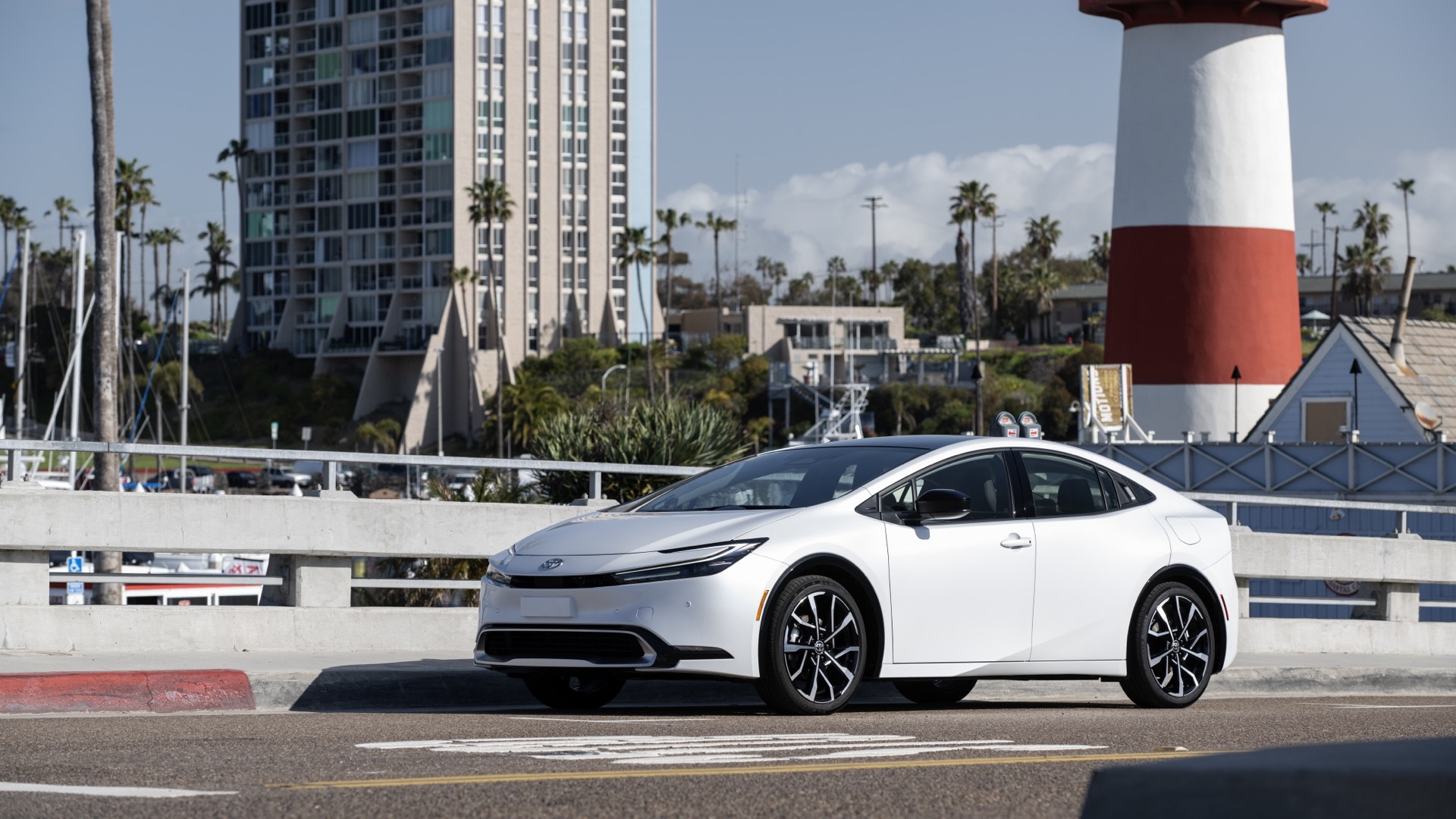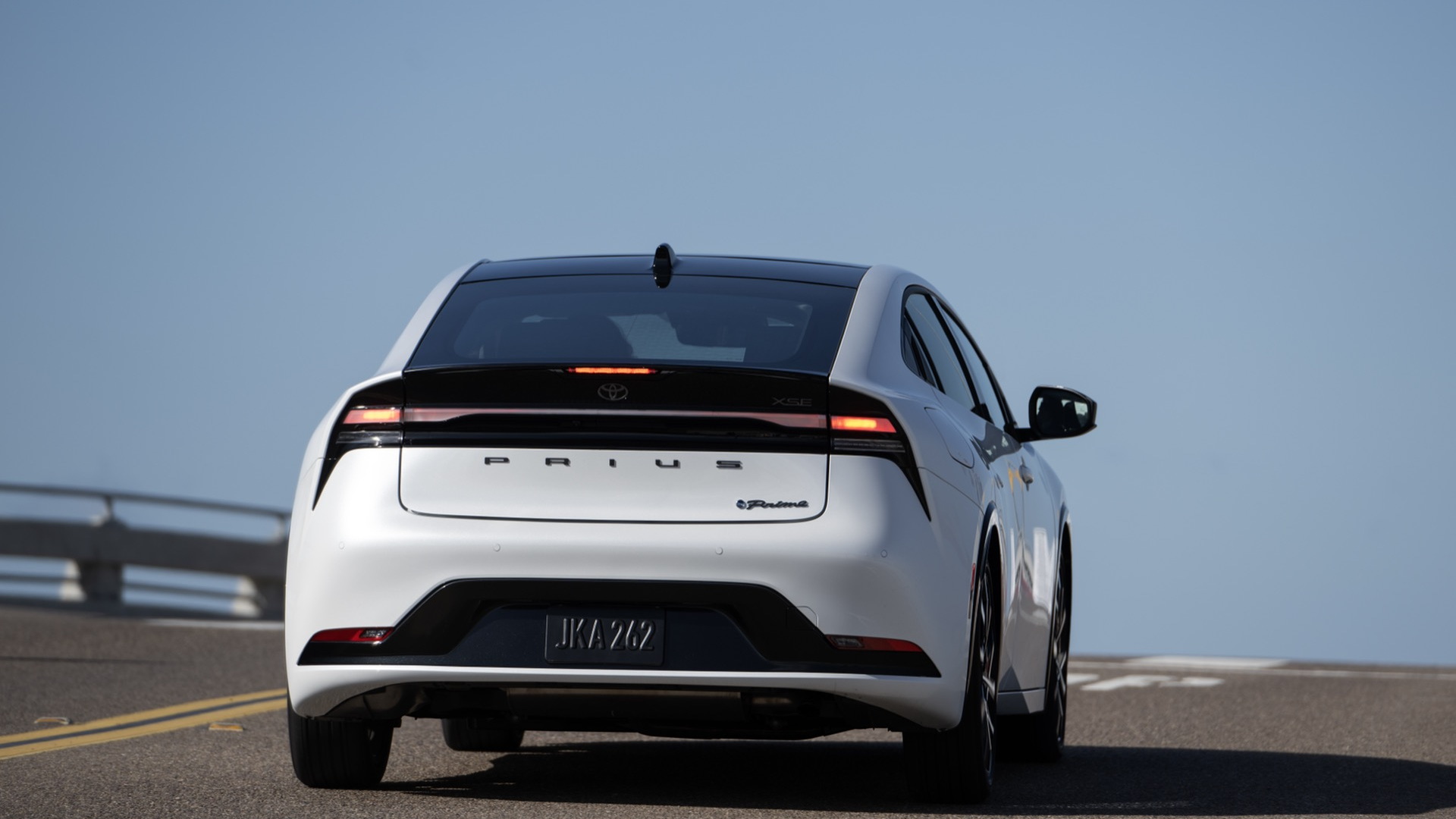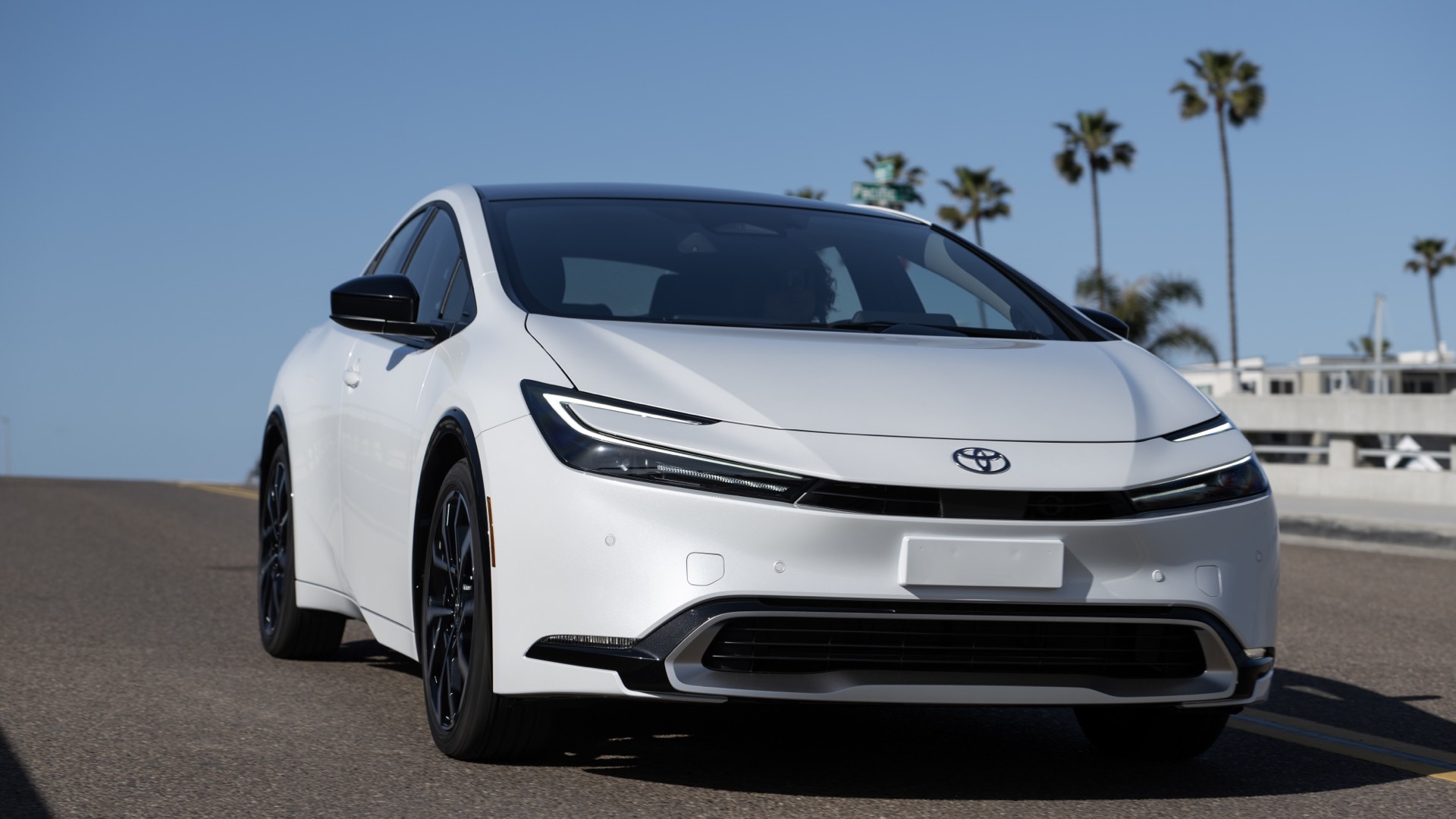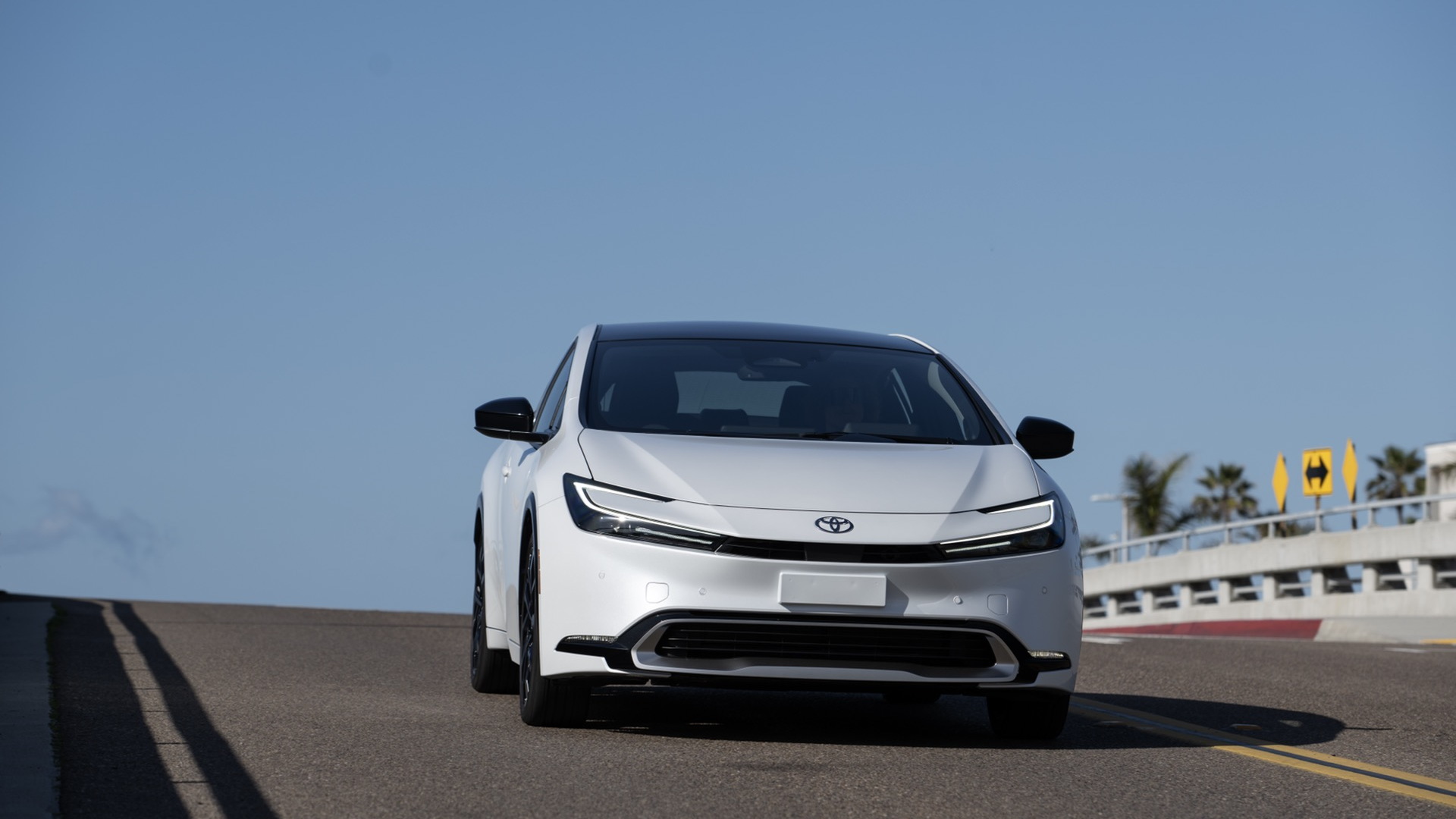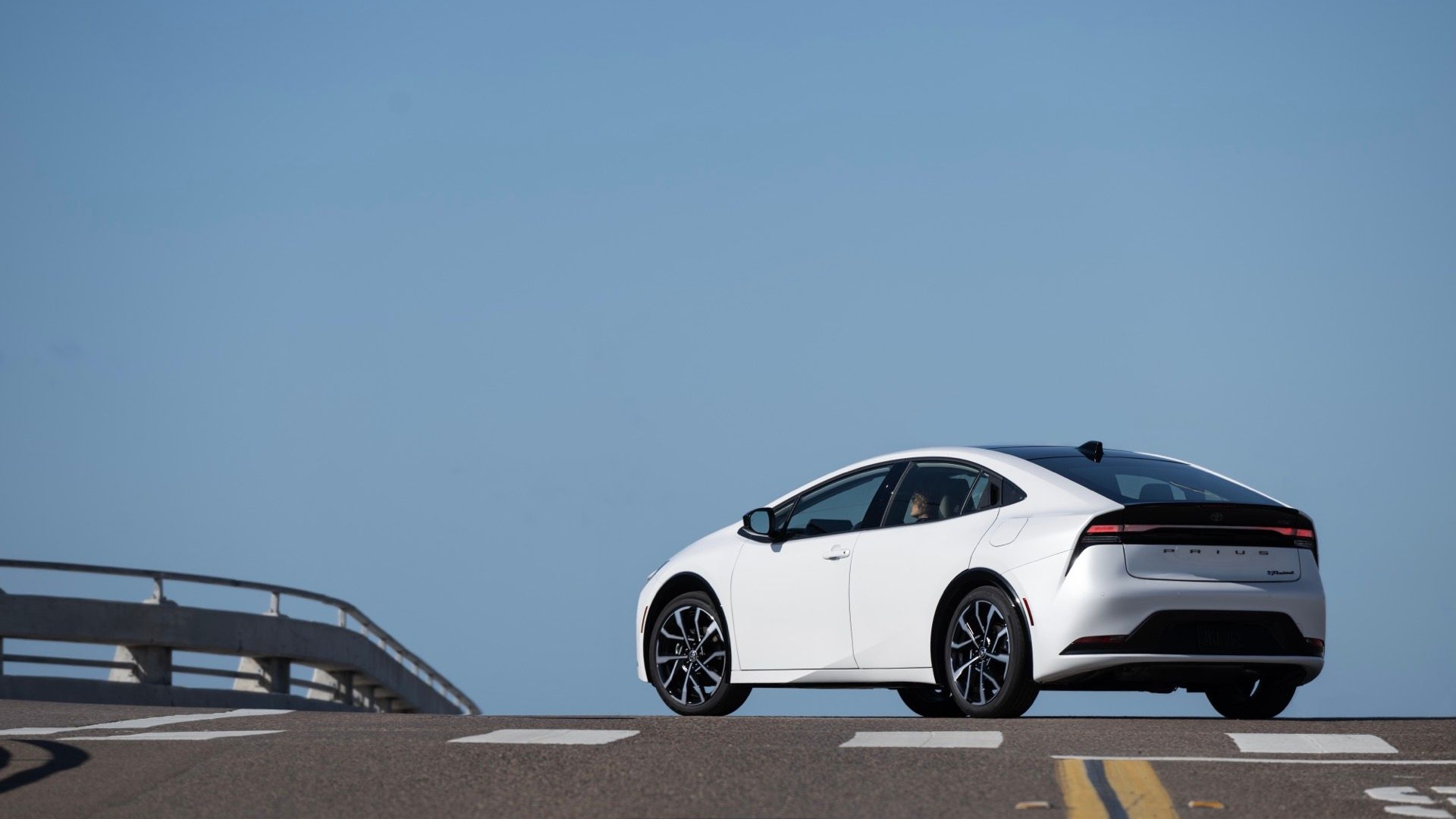If you choose to lease, the Toyota Prius Prime plug-in hybrid might cost significantly less to drive than the Prius hybrid—depending on where you live and which incentives Toyota might be factoring in.
As partner site CarsDirect points out, the Toyota Prius Prime SE has a lease payment of just $435 a month, with $435 due at signing. That’s for a 36-month lease allowing 12,000 miles annually.
Based on a Los Angeles location, the Prius Prime SE costs $33,445, including the $1,095 destination charge. A Prius XLE hybrid costs $31,990, also including destination. But with the same $435 out of pocket, it will cost $509 a month to lease.

2023 Toyota Prius
In a recent review of the 2023 Prius, Green Car Reports found a lot to like in its head-turning styling, great mpg, performance, price, and usable back seat. Its underwhelming front seats, unruly interface, and cabin noise kept the list of pros and cons pretty evenly stacked. A first drive of the 2023 Prius Prime found it to be a stealth EV that lives up to some of the green-car credentials of the former Chevrolet Volt. The Prius Prime SE offers 44 miles of fully electric range plus 51 mpg combined in hybrid mode after the charge is depleted.
Although Green Car Reports hasn’t spent an extended period with the Prius Prime the way it has the Prius hybrid, the Prime offers some other advantages—like quicker acceleration than the hybrid.
Why Prius Prime lease deals are so good
Federal funds help make this lease incongruity possible, Toyota confirmed to Green Car Reports.
"Under the provisions of the Inflation Reduction Act of 2022, as a leasing company, Toyota Lease Trust can claim tax credits for leasing battery electric vehicles (BEVs) and plug-in hybrid electric vehicles (PHEVs) to consumers," it stated. "We are partnering with Toyota, Lexus and our private label client to pass along the benefit of those tax credits to customers. This makes leasing more affordable and gets more clean vehicles on the road."
Toyota doesn’t disclose on consumer-facing pages whether it’s factoring the Commercial Vehicle Credit (IRS 45W) into the lease, and it doesn’t have to—but it accounts for a large discrepancy in affordability between these two models. According to Toyota, it applies that credit as a Rent Charge Factor (RCF) reduction for leases on applicable vehicles.
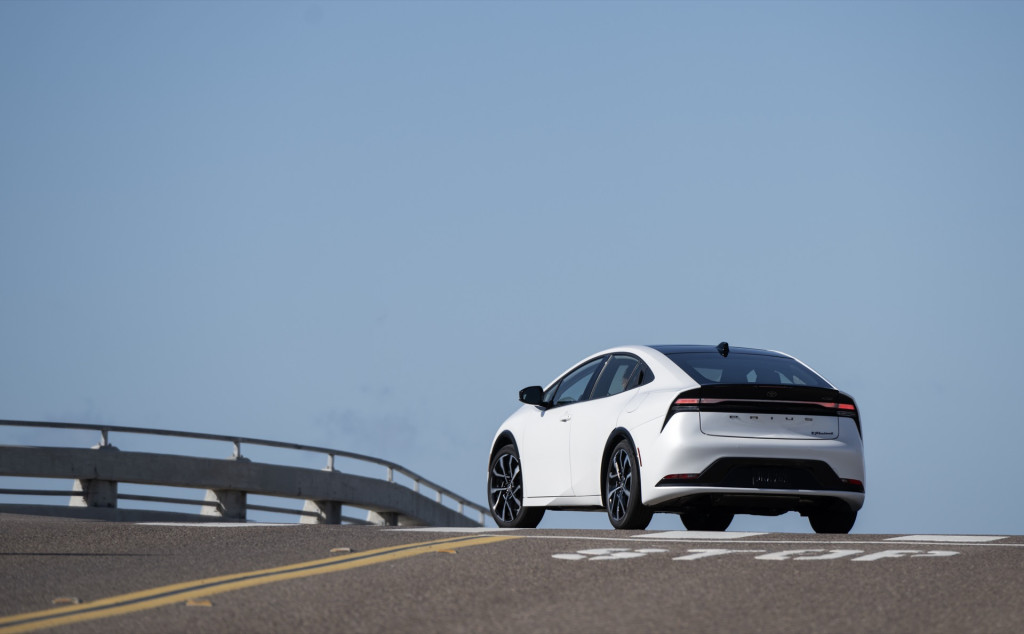
2023 Toyota Prius Prime
Under 45W, if an automaker has a captive or affiliated finance company and can offer the vehicle under lease, it can claim up to a $7,500 credit, and pass it along to the customer in the form of a lower lease payment. Unlike as with the Clean Vehicle Credit (30D) for EV purchases, vehicles claimed under 45W don’t have to be U.S.-made or sourced, and they don’t need to meet price ceiling requirements of $55,000 for cars and $80,000 for SUVs, pickups, and vans.
Senator Manchin attempted to delay the implementation of these Inflation Reduction Act (IRA) credits, aiming to see leased vehicles follow the same stringent U.S. assembly and sourcing requirements, but he was essentially booed off the stage.
Some advocates of the leasing loophole say that this helps level the playing field—essentially making leased EVs as affordable as for those who purchase EVs with a sizable down payment. But keep in mind that Toyota’s bargain Prius Prime lease price on this made-in-Japan vehicle is for those with “excellent” credit and thus even those who lease may be up against the same institutional barriers.
